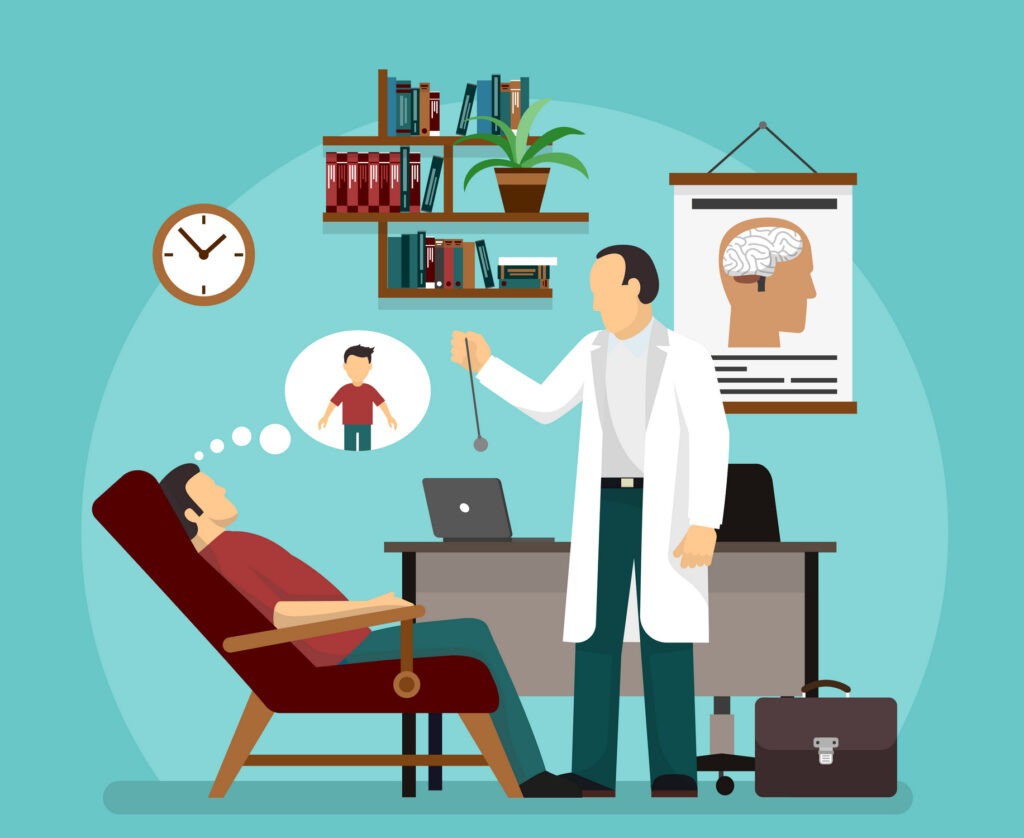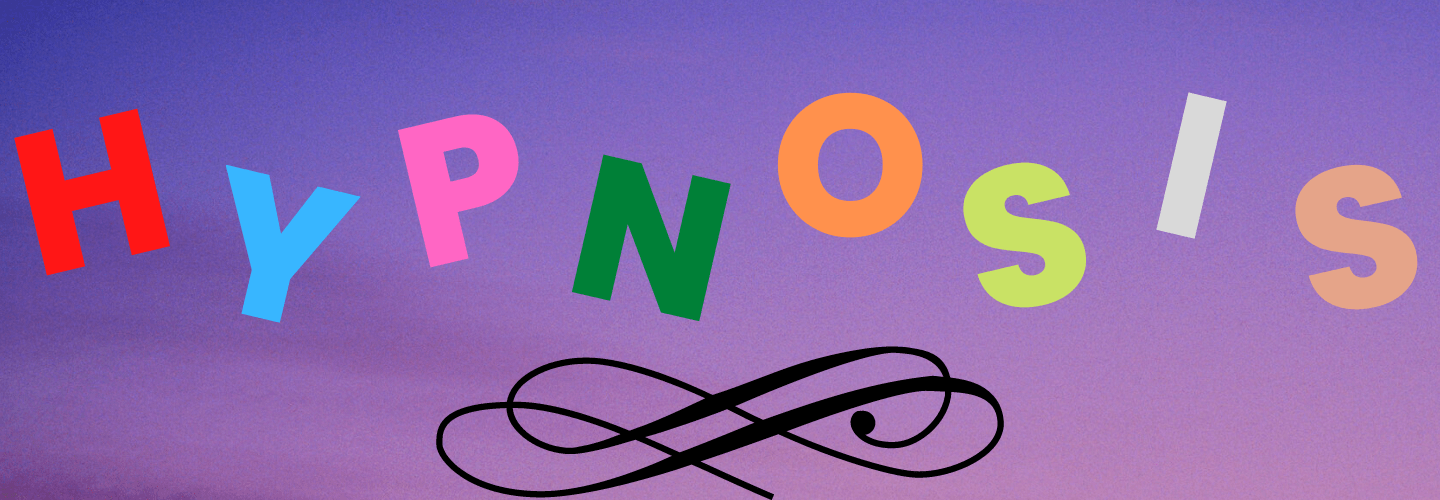
Harness the power of self-hypnosis to boost focus and concentration using visualization, positive affirmations, relaxation exercises, mindfulness practices, anchoring, goal setting, time distortion techniques, and structured scripts. Visualize your success vividly, repeat personalized affirmations, practice relaxation for mental clarity, embrace mindfulness for heightened awareness, and set SMART goals.
These techniques create a roadmap to deepen concentration and achieve your aspirations. Mastering these methods will enhance your focus capabilities and elevate your productivity levels.Enhance your focus and concentration through powerful self-hypnosis techniques that encompass various elements tailored to strengthen your ability to concentrate and achieve your goals.
Key Takeaways
- Visualization techniques create a clear roadmap for success.
- Positive affirmations eliminate negative self-talk and enhance focus.
- Relaxation exercises reduce stress and improve mental clarity.
- Mindfulness practices foster heightened awareness and concentration.
- SMART goals and self-hypnosis empower focus and productivity.
Visualization Techniques
Utilizing the power of visualization techniques in self-hypnosis can greatly enhance your focus and concentration levels, paving the way for achieving your desired outcomes with clarity and determination. When engaging in a self-hypnosis session, visualizing your goals with intricate detail is key. By mentally picturing the desired outcomes, whether it’s acing a presentation, overcoming a fear, or improving a skill, you can create a clear roadmap towards success.
Detailed visualization not only paints a vivid image of what you want to achieve but also enhances your focus and concentration. When you immerse yourself in the visualization process, utilizing all your senses – sight, sound, touch, smell, and taste – you deepen your connection to your goals. This multi-sensory experience during self-hypnosis helps in anchoring your focus on the task at hand.
Moreover, visualizing success during self-hypnosis sessions can significantly boost your motivation and drive. Seeing yourself accomplishing your goals in your mind’s eye can create a sense of belief and determination within you. Regular practice of visualization techniques in self-hypnosis strengthens your ability to concentrate on specific objectives, making it easier to stay focused, even in challenging situations. By incorporating visualization into your self-hypnosis routine, you can empower yourself to achieve greater focus, enhanced concentration, and ultimately, success in your endeavors.
Positive Affirmations
Incorporating positive affirmations into your self-hypnosis practice can be a transformative tool for enhancing focus and concentration levels. By utilizing positive affirmations, individuals can effectively eliminate negative self-talk that may hinder their ability to concentrate. Personalized affirmations such as ‘I am focused on my studies’ have the power to not only enhance concentration but also provide a motivational boost during challenging tasks.
Integrating affirmations into self-hypnosis routines offers a structured approach to improving focus and cognitive performance. Consistent repetition of affirmations, especially during study sessions, can help reinforce positive studying habits and cultivate a growth mindset. Affirmations like ‘I have excellent concentration skills’ serve as powerful reminders of one’s capabilities, leading to increased focus and productivity while studying.
Through the practice of positive affirmations within self-hypnosis techniques, individuals can rewire their thought patterns and enhance their ability to concentrate effectively. These affirmations act as supportive mantras that encourage a proactive approach to maintaining focus and achieving peak concentration levels. By embracing the potency of positive affirmations, individuals can enhance their full potential and experience heightened levels of concentration and focus in their daily endeavors.
Relaxation Exercises

Relaxation exercises play a pivotal role in self-hypnosis, offering techniques to induce a calm state of mind and promote mental clarity and focus. These exercises are essential for enhancing the ability to focus and concentrate effectively.
Here are some key relaxation exercises commonly used in self-hypnosis:
- Deep Breathing Techniques: Deep breathing exercises help calm the mind and body, reducing stress and anxiety levels to improve focus and concentration during self-hypnosis sessions.
- Progressive Muscle Relaxation: This technique involves tensing and then relaxing different muscle groups to release physical tension, promoting overall relaxation and mental clarity for better focus.
- Visualization Exercises: Visualization exercises create a peaceful mental image, such as a serene beach or a tranquil forest, to enhance focus and concentration by providing a positive mental space for the mind to thrive.
- Guided Imagery Scripts: Guided imagery scripts lead individuals through relaxing scenarios, engaging the senses and imagination to improve focus and mental clarity, ultimately aiding in achieving a state of heightened concentration and focus.
Incorporating these relaxation techniques into self-hypnosis practices can considerably enhance the overall experience, leading to improved focus, concentration, and mental well-being.
Mindfulness Practices
Mindfulness practices within self-hypnosis encompass the art of focusing on the present moment without judgment, fostering a heightened sense of awareness and concentration. By training the mind to stay attentive and aware, these techniques enhance concentration levels, allowing individuals to reduce distractions and improve cognitive performance during self-hypnosis sessions. Regular practice of mindfulness can lead to increased self-awareness and improved mental clarity, providing a solid foundation for achieving goals effectively.
Engaging in mindfulness techniques during self-hypnosis promotes a state of calm focus, enabling individuals to explore deeper into their subconscious minds and access their full potential. Through this practice, individuals can nurture a sense of presence and inner peace, allowing them to navigate challenges with clarity and resilience.
Moreover, mindfulness practices not only benefit cognitive performance during self-hypnosis but also have a ripple effect on everyday life. By honing the ability to be fully present and attentive, individuals can experience increased productivity, better stress management, and enhanced overall well-being. Embracing mindfulness within self-hypnosis is a powerful tool for sharpening focus, strengthening concentration, and uncovering the mind’s true capabilities.
Anchoring and Triggering

To enhance focus and concentration in self-hypnosis, practitioners often utilize anchoring and triggering techniques as powerful tools for maintaining a heightened state of mental clarity and attentiveness. Anchoring involves associating a specific stimulus with a desired mental state, such as focus and concentration. Triggering, on the other hand, refers to using this anchored stimulus to instantly access the focused state during tasks or activities.
Here are four key ways in which anchoring and triggering can benefit individuals looking to enhance their ability to concentrate effectively:
- Enhanced Recall: Anchoring and triggering create a subconscious link between the stimulus and the focused mindset, aiding in the quick recall of information when needed.
- Improved Concentration: These techniques help reinforce and maintain heightened focus levels, allowing individuals to stay concentrated on the task at hand.
- Efficient Task Execution: By utilizing triggering, individuals can promptly access their focused state, leading to more efficient task execution.
- Increased Productivity: The ability to trigger a state of heightened focus enables individuals to work more productively and achieve their goals effectively.
Goal Setting With Self-Hypnosis
Begin a transformative journey towards enhanced focus and productivity through the powerful practice of goal setting with self-hypnosis. Setting specific, measurable goals before a self-hypnosis session is key to enhancing focus and concentration. By clearly defining goals, you are directing your subconscious mind towards achieving the desired outcomes. Think of goal setting in self-hypnosis as providing a roadmap for where to focus your mental energy and attention. When you establish achievable goals during self-hypnosis sessions, you improve clarity and motivate sustained concentration. This practice not only helps in prioritizing tasks but also in reducing distractions, ultimately boosting overall productivity.
Within the domain of self-hypnosis, goal setting plays an important role in guiding your subconscious mind towards success. As you explore the practice, remember that the goals you set should be specific, measurable, achievable, relevant, and time-bound. These SMART goals serve as beacons, guiding your mind towards desired outcomes. By incorporating goal setting into your self-hypnosis routine, you empower yourself to take charge of your focus, concentration, and productivity. It’s time to set your intentions, harness the power of your subconscious mind, and work towards achieving your dreams through the transformative practice of goal setting with self-hypnosis.
Time Distortion Techniques

As we explore the concept of time distortion techniques in self-hypnosis, we open doors to altering our perception of time. These techniques hold the power to transform how we experience the passing of time, allowing us to enhance focus and efficiency in our tasks.
Slow Time Perception
Enhancing focus and concentration through self-hypnosis involves utilizing time distortion techniques to alter the perception of time passing. Slow time perception can aid individuals in focusing deeply on tasks and enhancing concentration. This altered perception of time allows for increased productivity and efficiency as individuals immerse themselves fully in the present moment.
By practicing time distortion techniques, individuals can improve their time management skills and enhance their ability to achieve goals effectively. Embracing the concept of slow time perception not only enhances productivity but also fosters a sense of mindfulness and awareness in everyday activities, leading to a more fulfilling and purposeful existence.
- Time distortion techniques enable deep focus.
- Slow time perception enhances concentration.
- Increased productivity results from altered time perception.
- Enhances mindfulness and goal achievement.
Speed Up Time
Utilizing time distortion techniques in self-hypnosis allows individuals to accelerate their perception of time, enhancing focus and productivity in their endeavors. By manipulating how time is subjectively experienced, individuals can effectively optimize their performance and achieve tasks more efficiently. This distortion of time perception serves as a powerful tool in combating procrastination and improving overall time management skills.
Through the practice of time distortion techniques in self-hypnosis, individuals can create a sense of time expansion or contraction, leading to heightened concentration levels. Embracing these methods empowers individuals to make the most out of their time, fostering a mindset of increased efficiency and productivity in their daily activities.
Self-Hypnosis Scripts
Crafting personalized self-hypnosis scripts tailored to individual goals and challenges is a transformative practice that enhances focus and concentration. By utilizing self-hypnosis scripts effectively, individuals can tap into their subconscious mind to reprogram thoughts and behaviors that hinder focus.
Here are key elements to ponder when creating and utilizing self-hypnosis scripts:
- Structured Guidance: Self-hypnosis scripts provide a roadmap for enhancing focus and concentration, offering a clear path to follow during the hypnotic session.
- Language Patterns: These scripts incorporate specific language patterns designed to induce a hypnotic state focused on concentration, helping individuals enter a state of deep focus more effectively.
- Visualization Techniques: Incorporating visualization techniques into self-hypnosis scripts can deepen the hypnotic experience, making it easier to visualize goals and maintain focus on them.
- Personalization: Self-hypnosis scripts can be customized to address individual goals and challenges related to focus, allowing for a more tailored and effective approach to increasing concentration levels.
With consistent practice and dedication to using self-hypnosis scripts, individuals can experience tangible improvements in their ability to focus better and enhance their overall concentration levels over time.
Frequently Asked Questions
What Are the 4 Steps of Self-Hypnosis?
The 4 essential steps of self-hypnosis are:
Preparation involves setting specific goals and identifying distractions.
Induction techniques such as eye fixation help induce a hypnotic state.
Deepening includes visualizing desired outcomes and relaxing further.
Suggestions are then given to enhance focus, concentration, deep relaxation, mental clarity, and overall well-being during the self-hypnosis session.
Can Hypnosis Help With Memory and Focus?
Hypnosis has shown promising results in aiding memory improvement, focus enhancement, and offering cognitive benefits.
Studies suggest that hypnosis can relax the conscious mind, allowing access to the subconscious for improved memory and focus.
By helping individuals block distractions and concentrate on goals, hypnotherapy can sharpen the mind for better cognitive functions.
Neuroscientists support the idea that hypnosis can indeed enhance focus and attention, leading to improved memory retention and increased concentration levels over time.
What Is Self-Hypnosis Techniques?
Self-hypnosis techniques involve guiding oneself into a hypnotic state through deep relaxation, mental imagery, and positive affirmations. This practice enables individuals to access their subconscious mind and reprogram thoughts for various purposes.
Can You Be Hypnotized to Be More Productive?
Hypnosis can indeed enhance productivity by boosting efficiency, increasing motivation, and improving performance. Research suggests that hypnotherapy can help individuals overcome barriers to productivity, leading to peak performance levels.
Conclusion
To sum up, self-hypnosis techniques offer powerful tools to enhance focus and concentration. By incorporating visualization, positive affirmations, relaxation exercises, mindfulness practices, anchoring, goal setting, time distortion techniques, and self-hypnosis scripts, individuals can improve their cognitive abilities and achieve their goals.
Through the power of the mind, one can tap into their full potential and cultivate a strong sense of mental clarity and productivity. Embrace the journey of self-discovery and harness the power within you.

Take the Next Step
Do not be afraid to reach out to me, Mark , to assist you in any issues you might have. Need a good listener or someone to confidentially talk too? . Life Coaching is 45 minute session, once a week.
Self-Hypnosis is taught in one session, individual sessions or in a group, and lasts a lifetime. Most Hypnotherapy sessions including Age regression last 2 hours and EFT Sessions are usually handled with a one hour session
To make an appointment, first listen to the Pre-talk and fill out the Complementary Healthcare Provider Disclosure. The use the Contact Form to request an appointment with, Mark, The Bohol Hypnosis Expert.
Self-help downloads are available to help you with specific problems. The self-hypnosis program to teach you how to self-hypnotize yourself is available here.





